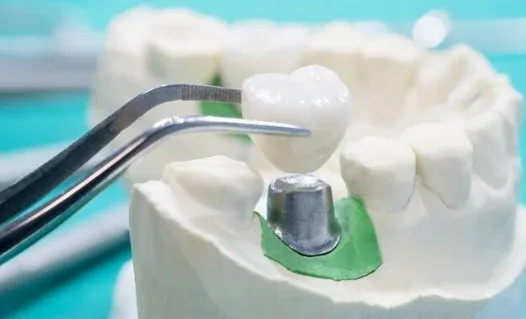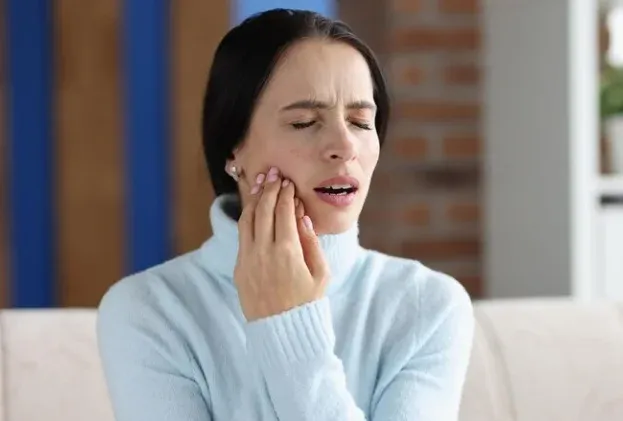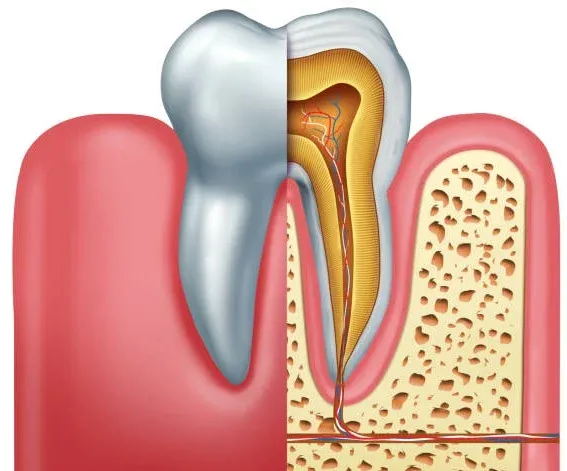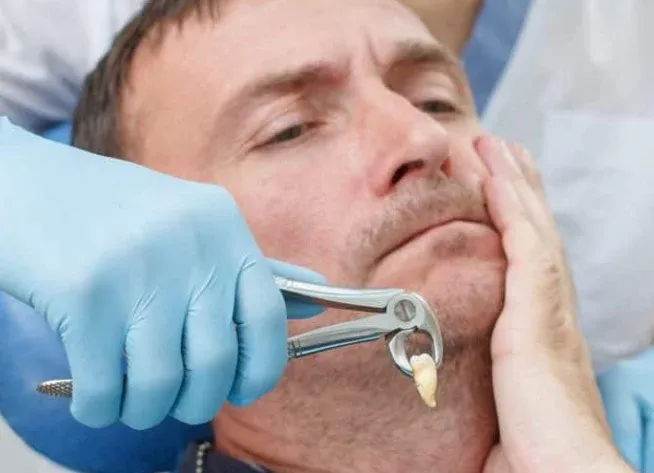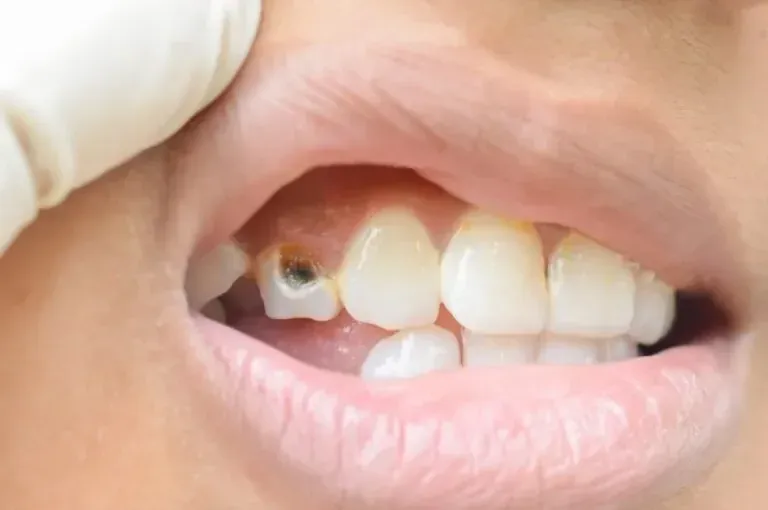My Crown Fell Out But It Doesn’t Hurt: What to Do Next in 2026
Dental crowns are a common restorative treatment used to protect and strengthen damaged or weakened teeth….
Dental crowns are a common restorative treatment used to protect and strengthen damaged or weakened teeth. While they are typically durable and long-lasting, it’s not uncommon for a crown to fall out unexpectedly. If you find yourself in a situation where your crown has come off but you experience no pain or discomfort, it’s essential to understand the potential reasons behind it and what steps to take. In this comprehensive guide, we will explore what a dental crown is, the possible causes of a crown falling out painlessly, what you should do when this happens, preventive measures to avoid it in the future, and when it’s necessary to consult a dentist.
Why it helps: Provides a safe, temporary hold for your crown until you can see your dentist, preventing further damage to the exposed tooth.
What is a Dental Crown?
A dental crown is a customized cap-like structure made of materials such as porcelain, ceramic, metal, or a combination of these. It is designed to fit over a damaged or weakened tooth, restoring its shape, size, strength, and appearance. Crowns are commonly used to protect teeth that have undergone root canal therapy, have significant decay, are fractured, or need aesthetic improvement. Think of it as a protective helmet for your tooth—it covers the entire visible portion above the gum line and is cemented into place.
In 2026, dental crowns have become even more advanced, with materials that mimic natural tooth enamel more closely than ever before. Digital scanning and 3D printing technology now allow for same-day crown placement in many dental offices, making the process faster and more convenient than in previous years.
Why Might a Crown Fall Out Without Pain?
A crown falling out can be a surprising and unexpected event, especially when there’s no accompanying pain. Several factors can contribute to this occurrence:
1. Cement Failure
The most common reason for a crown to fall out is cement failure. Dental crowns are typically secured in place using dental cement. Over time, this cement can weaken, break down, or wash away due to various factors, such as age, chewing forces, and oral hygiene habits. The good news is that if the cement fails but the underlying tooth structure remains healthy, you likely won’t experience pain—the tooth itself is intact, just exposed.
2. Tooth Structure Changes
If the underlying tooth structure changes due to decay, fracture, or other dental issues, it can affect the crown’s fit and retention. Sometimes decay can develop at the margin where the crown meets the tooth, similar to tooth decay at the gum line, which gradually loosens the crown without causing immediate pain.
3. Trauma or Injury
A blow to the mouth or facial trauma can dislodge a crown, even if there is no immediate pain or discomfort. The impact may break the cement seal without damaging the nerve of the tooth, which is why you might not feel any pain initially.
4. Poor Crown Fit
In some cases, a crown may not have been properly fitted or bonded to the tooth during the initial placement, increasing the risk of it coming off. This is less common with modern digital dentistry techniques available in 2026, but it can still occur.
5. Chewing on Hard Objects
Chewing on hard objects like ice, pens, or fingernails can put excessive stress on the crown and lead to its dislodgment. Similarly, sticky foods like caramels or taffy can pull a crown loose if the cement has weakened over time.
6. Natural Wear Over Time
Crowns typically last 10-15 years or longer with proper care, but they don’t last forever. As crowns age, the cement bond naturally weakens, making them more susceptible to falling out, especially if the crown is approaching or has exceeded its expected lifespan.
What Should I Do If My Crown Falls Out?
If your crown falls out but you experience no pain or discomfort, don’t panic. Follow these steps to protect your tooth and preserve the crown until you can see your dentist:
| Steps | Actions |
|---|---|
| 1. | Retrieve the Crown: Carefully pick up the fallen crown, handling it by the chewing surface and avoiding contact with the inside surface (which has been in your mouth). Place it in a safe container. |
| 2. | Inspect the Crown: Examine the inside of the crown to check for the presence of old cement or debris. Gently clean it with warm water and a soft toothbrush, but avoid harsh scrubbing that could damage it. |
| 3. | Inspect the Tooth: Look at the tooth from which the crown fell to ensure there is no visible damage or discomfort. If the tooth appears intact and you experience no pain, that’s a good sign. |
| 4. | Temporary Solution: If you are unable to see a dentist immediately, you can try placing the crown back in its position. Use dental adhesive or over-the-counter temporary dental cement to secure it temporarily. Make sure the crown is oriented correctly before pressing it into place. |
| 5. | Avoid Chewing: Avoid chewing on the side of the mouth with the dislodged crown until it can be properly evaluated and re-cemented by a dentist. Stick to soft foods and chew on the opposite side. |
| 6. | Contact Your Dentist: Schedule an appointment with your dentist as soon as possible—ideally within 24-48 hours—to have the crown re-cemented or replaced. |
Why it helps: This emergency dental kit includes temporary cement and filling material to secure loose crowns and protect exposed teeth until professional care is available.
Why Doesn’t It Hurt When My Crown Falls Out?
Many people are surprised when their crown falls out without any pain. Here’s why this happens:
If the tooth underneath the crown has had a root canal, the nerve has been removed, so you won’t feel any sensitivity or pain when the crown comes off. Even if the tooth still has a nerve, the crown falling out doesn’t necessarily damage the tooth structure itself—it simply exposes it. Pain typically only occurs if the exposed tooth comes into contact with hot, cold, or sweet substances, or if there’s underlying decay or damage.
However, just because it doesn’t hurt doesn’t mean you should delay treatment. An exposed tooth is vulnerable to damage, decay, and sensitivity, so prompt dental care is essential.
How Can I Prevent My Crown from Falling Out Again?
Preventing a crown from falling out again involves several proactive measures:
1. Regular Dental Check-ups
Attend regular dental check-ups every six months to ensure the crown’s condition is monitored, and any issues can be addressed promptly. Your dentist can detect early signs of cement failure or decay before the crown becomes loose.
2. Good Oral Hygiene
Maintain excellent oral hygiene, including brushing twice daily with fluoride toothpaste, flossing around the crown carefully, and rinsing with an antimicrobial mouthwash to reduce the risk of decay or gum disease around the crown. Pay special attention to the margin where the crown meets your natural tooth.
3. Avoid Hard Foods
Refrain from chewing on hard foods or objects that can place excessive stress on the crown. This includes ice, hard candies, popcorn kernels, and non-food items like pens or fingernails.
4. Protect Against Trauma
Take precautions to prevent facial or mouth trauma, such as wearing a custom night guard if you grind your teeth, or a sports mouthguard during athletic activities that carry a risk of injury.
5. Address Dental Issues Promptly
Address any underlying dental issues promptly, such as tooth decay or gum disease, to maintain the integrity of the tooth supporting the crown. If you notice any changes in how your crown feels or fits, contact your dentist right away.
6. Follow Post-Treatment Instructions
Follow any post-treatment instructions provided by your dentist, such as avoiding sticky foods or chewing on the crown immediately after placement. Give the cement adequate time to set—usually 24 hours—before eating hard or chewy foods.
7. Consider Crown Replacement
If your crown is more than 10-15 years old, discuss with your dentist whether it’s time for a replacement. Older crowns may be more prone to falling out due to wear and tear on both the crown and the cement.
When Should I See a Dentist?
While experiencing no pain or discomfort after a crown falls out is fortunate, it’s essential to see a dentist as soon as possible. Here are some scenarios when you should seek dental care:
- Within 24-48 Hours: Even if you experience no pain, schedule an appointment within one to two days. The exposed tooth is vulnerable and needs protection.
- The Crown Cannot Be Reattached: If the crown is damaged, doesn’t fit properly, or cannot be reattached, it may need replacement. Don’t try to force a damaged crown back onto your tooth.
- Pain or Discomfort Develops: If you experience any pain, discomfort, or sensitivity after the crown falls out, it could indicate an underlying issue that needs prompt attention. This might signal decay or damage to the underlying tooth structure.
- Exposed Tooth: An exposed tooth without the crown can be vulnerable to decay and damage, so seeing a dentist promptly is crucial. The tooth may also become sensitive to temperature changes.
- Change in Tooth Color or Appearance: A change in the color or appearance of the tooth may signal an issue that requires professional evaluation, such as decay or a fracture.
- Inability to Secure the Crown Temporarily: If you cannot secure the crown temporarily or have concerns about its condition, consult your dentist for guidance. They may be able to see you on an emergency basis.
- Signs of Infection: If you notice swelling, a bad taste in your mouth, or any signs of infection around the tooth, seek immediate dental care.
Why it helps: If your exposed tooth becomes sensitive after the crown falls out, this topical gel provides fast, temporary relief until you can see your dentist.
What Will the Dentist Do?
When you visit your dentist after your crown falls out, they will typically follow these steps:
Examination: Your dentist will examine both the crown and the underlying tooth to assess their condition. They may take X-rays to check for decay, fractures, or other issues beneath the gum line.
Cleaning: Both the crown and the tooth will be thoroughly cleaned to remove any old cement, debris, or bacteria.
Assessment: Your dentist will determine whether the crown can be re-cemented or if a new crown is needed. If the tooth has decayed or changed shape, a new crown may be necessary.
Re-cementation or Replacement: If the crown is in good condition and fits properly, your dentist will re-cement it using fresh dental cement. If a new crown is needed, they will take impressions or digital scans and may place a temporary crown while the permanent one is being made.
Follow-up Care: Your dentist will provide instructions for caring for your crown and may schedule a follow-up appointment to ensure everything is healing properly.
How Much Does Crown Repair or Replacement Cost in 2026?
The cost of crown repair or replacement varies depending on several factors:
- Re-cementation: If your existing crown can be cleaned and re-cemented, the cost typically ranges from $50 to $200, depending on your location and dental practice.
- New Crown: If a new crown is needed, costs can range from $800 to $3,000 per tooth, depending on the material used (porcelain, ceramic, metal, or zirconia) and whether you have dental insurance.
- Insurance Coverage: Many dental insurance plans cover a portion of crown replacement costs, especially if the crown is more than five years old. Check with your insurance provider for specific coverage details.
- Payment Plans: Many dental offices offer payment plans or financing options to make crown replacement more affordable.
Can I Eat With a Missing Crown?
While waiting for your dental appointment, you can eat, but you should take precautions:
- Stick to soft foods that don’t require much chewing
- Avoid hot, cold, or sweet foods that might cause sensitivity
- Chew on the opposite side of your mouth from the exposed tooth
- Avoid sticky or hard foods that could damage the exposed tooth
- Rinse your mouth with warm salt water after eating to keep the area clean
Conclusion
Experiencing a crown falling out without pain or discomfort can be surprising, but it’s essential to understand the potential causes and take appropriate steps to address the situation. Dental crowns are valuable for preserving and protecting teeth, and their long-term success depends on regular dental care, good oral hygiene, and prompt professional attention when issues arise.
Remember, even though you may not feel any pain, an exposed tooth is vulnerable to damage and decay. Contact your dentist within 24-48 hours to have your crown evaluated and re-cemented or replaced. With proper care and timely treatment, your crown can continue to protect your tooth for many years to come.
In 2026, dental technology has made crown placement and repair faster and more convenient than ever before. Many dentists now offer same-day crown services using digital scanning and in-office milling, so you may not have to wait weeks for a replacement crown. Take advantage of these modern advances and don’t delay in seeking professional care when your crown falls out.

